- Home
- Norman Mailer
The Time of Her Time
The Time of Her Time Read online
THE TIME OF HER TIME Norman Mailer (1958)
1
I was living in a room one hundred feet long and twenty-five feet wide, and it had nineteen windows staring at me from three of the walls and part of the fourth. The floor planks were worn below the level of the nails which held them down, except for the southern half of the room where I had laid a rough linoleum which gave a hint of sprinkled sand, conceivably an aid to the footwork of my pupils. For one hundred dollars I had the place whitewashed; everything: the checkerboard of tin ceiling plates one foot square with their fleur-de-lis stamped into the metal, the rotted sashes on the window frames (it took twelve hours to scrape the calcimine from the glass), even parts of the floor had white drippings (although that was scuffed into dust as time went on) and yet it was worth it. When I took the loft it stank of old machinery and the paint was a liverish brown -- I had tried living with that color for a week, my old furniture which had been moved by a mover friend from the Village and me, showed the scars of being humped and dragged and flung up six flights of stairs, and the view of it sprawled over twenty-five hundred feet of living space, three beat old day beds, some dusty cushions, a broken-armed easy chair, a cigarette-scarred coffee table made from a door, a kitchen table, some peeled enamel chairs which thumped like a wooden-legged pirate when one sat in them, the bookshelves of unfinished pine butted by bricks, yes all of this, my purview, this grand vista, the New York sunlight greeting me in the morning through the double filter of the smog-yellow sky and the nineteen dirt-frosted windows, inspired me with so much content, especially those liver-brown walls, that I fled my pad like the plague, and in the first week, after a day of setting the furniture to rights, I was there for four hours of sleep a night, from five in the morning when I maneuvered in from the last closed Village bar and the last coffee-klatsch of my philosopher friends for the night to let us say nine in the morning when I awoke with a partially destroyed brain and the certainty that the sore vicious growl of my stomach was at least the onset of an ulcer and more likely the first gone cells of a thoroughgoing cancer of the duodenum. So I lived it that way for a week, and then following the advice of a bar-type who was the friend of a friend, I got myself up on the eighth morning, boiled my coffee on a hot-plate while I shivered in the October air (neither the stove nor the gas heaters had yet been bought) and then I went downstairs and out the front door of the warehouse onto Monroe Street, picking my way through the garbage-littered gutter which always made me think of the gangs on this street, the Negroes on the east end of the block, the Puerto Ricans next to them, and the Italians and Jews to the west -- those gangs were going to figure a little in my life, I suspected that, I was anticipating those moments with no quiet bravery considering how hung was my head in the morning, for the worst clue to the gangs was the six-year-olds. They were the defilers of the garbage, knights of the ordure, and here, in this province of a capital Manhattan, at the southern tip of the island, with the overhead girders of the Manhattan and Brooklyn bridges the only noble structures for a mile of tenement jungle, yes here the barbarians ate their young, and any type who reached the age of six without being altogether mangled by father, mother, family or friends, was a pint of iron man, so tough, so ferocious, so sharp in the teeth that the wildest alley cat would have surrendered a freshly caught rat rather than contest the meal. They were charming, these six-year-olds, as I told my uptown friends, and they used to topple the overloaded garbage cans, strew them through the street, have summer snowball fights with orange peel, coffee grounds, soup bones, slop, they threw the discus by scaling the raw tin rounds from the tops of cans, their pillow fights were with loaded socks of scum, and a debauch was for two of them to scrub a third around the inside of a twenty-gallon pail still warm with the heat of its emptied treasures. I heard that the Olympics took place in summer when they were out of school and the streets were so thick with the gum of old detritus, alluvium and dross that the mash made by passing car tires fermented in the sun. Then the parents and the hoods and the debs and the grandmother dowagers cheered them on and promised them murder and the garbage flew all day, but I was there in fall and the scene was quiet from nine to three. So I picked my way through last night's stew of rubble on this eighth morning of my hiatus on Monroe Street, and went half down the block to a tenement on the boundary between those two bandit republics of the Negroes and the Puerto Ricans, and with a history or two of knocking on the wrong door, and with a nose full of the smells of the sick overpeppered bowels of the poor which seeped and oozed out of every leaking pipe in every communal crapper (only as one goes north does the word take on the Protestant propriety of john), I was able finally to find my man, and I was an hour ahead of him -- he was still sleeping off his last night's drunk. So I spoke to his wife, a fat masculine Negress with the face and charity of a Japanese wrestler, and when she understood that I was neither a junk-peddler nor fuzz, that I sold no numbers, carried no bills, and was most certainly not a detective (though my Irish face left her dubious of that) but instead had come to offer her husband a job of work, I was admitted to the first of three dark rooms, face to face with the gray luminescent eye of the television set going its way in the dark room on a bright morning, and through the hall curtains I could hear them talking in the bedroom.
"Get up, you son of a bitch," she said to him.
He came to work for me, hating my largesse, lugging his air compressor up my six flights of stairs, and after a discussion in which his price came down from two hundred to one, and mine rose from fifty dollars to meet his, he left with one of my twenty-dollar bills, the air compressor on the floor as security, and returned in an hour with so many sacks of whitewash that I had to help him up the stairs. We worked together that day, Charlie Thompson his name was, a small lean Negro maybe forty years old, and conceivably sixty, with a scar or two on his face, one a gouge on the cheek, the other a hairline along the bridge of his nose, and we got along not too badly, working in sullen silence until the hangover was sweated out, and then starting to talk over coffee in the Negro hashhouse on the corner where the bucks bridled a little when I came in, and then ignored me. Once the atmosphere had become neutral again, Thompson was willing to talk.
"Man," he said to me, "what you want all that space for?"
"To make money."
"Out of which?"
I debated not very long. The people on the block would know my business sooner or later -- the reward of living in a slum is that everyone knows everything which is within reach of the senses -- and since I would be nailing a sign over my mailbox downstairs for the pupils to know which floor they would find me on, and the downstairs door would have to be open since I had no bell, the information would be just as open. But for that matter I was born to attract attention; given my height and my blond hair, the barbarians would notice me, they noticed everything, and so it was wiser to come on strong than to try to sidle in.
"Ever hear of an Escuela de Torear ?" I asked him without a smile.
He laughed with delight at the sound of the words, not even bothering to answer.
"That's a bullfighter's school," I told him. "I teach bullfighting."
"You know that?"
"I used to do it in Mexico."
"Man, you can get killed."
"Some do." I let the exaggeration of a cooled nuance come into my voice. It was true after all; some do get killed. But not so many as I was suggesting, maybe one in fifty of the successful, and one in five hundred of the amateurs like me who fought a few bulls, received a few wounds, and drifted away.
Charley Thompson was impressed. So were others -- the conversation was being overheard after all, and I had become a cardinal piece on the chaotic chessboard of Monroe Street's sociology -- I felt
the clear bell-like adrenalins of clean anxiety, untainted by weakness, self-interest, neurotic habit, or the pure yellows of the liver. For I had put my poker money on the table, I was the new gun in a frontier saloon, and so I was asking for it, not today, not tomorrow, but come sooner, come later, something was likely to follow from this. The weak would leave me alone, the strong would have respect, but be it winter or summer, sunlight or dark, there would come an hour so cold or so hot that someone, somebody, some sexed-up head, very strong and very weak, would be drawn to discover a new large truth about himself and the mysteries of his own courage or the lack of it. I knew. A year before, when I had first come to New York, there was a particular cat I kept running across in the bars of the Village, an expert with a knife, or indeed to maintain the salts of accuracy, an expert with two knives. He carried them everywhere -- he had been some sort of hophead instructor in the Marines on the art of fighting with the knife, and he used to demonstrate nice fluid poses, his elbows in, the knives out, the points of those blades capering free of one another -- he could feint in any direction with either hand, he was an artist, he believed he was better with a knife than any man in all of New York, and night after night in bar after bar be sang the love-song of his own prowess, begging for the brave type who would take on his boast, and leave him confirmed or dead.
It is mad to take on the city of New York, there is too much talent waiting on line; this cat was calling for every hoodlum in every crack gang and clique who fancied himself with the blade, and one night, drunk and on the way home, he was greeted by another knife, a Puerto Rican cat who was defective in school and spent his afternoons and nights shadow-knifing in the cellar club-house of his clique, a real contender, long-armed for a Latin, thin as a Lehmbruck, and fast as a hungry wolf; he had practiced for two months to meet the knife of New York.
So they went into an alley, the champion drunk, a fog of vanity blanketing the point of all his artistic reflexes, and it turned out to be not too much of a fight: the Puerto Rican caught it on the knuckles, the lip, and above the knee, but they were only nicks, and the champion was left in bad shape, bleeding from the forearm, the belly, the chest, the neck, and the face: once he was down, the Puerto Rican had engraved a double oval, labium majorum and minorum on the skin of the cheek, and left him there, having the subsequent consideration or fright to make a telephone call to the bar in which our loser had been drinking. The ex-champion, a bloody cat, was carried to his pad which was not far away (a bit of belated luck) and in an hour, without undue difficulty the brother-in-law doctor of somebody or other was good enough to take care of him. There were police reports, and as our patois goes, the details were a drag, but what makes my story sad is that our ex-champion was through. He mended by sorts and shifts, and he still bragged in the Village bars, and talked of finding the Puerto Rican when he was sober and in good shape, but the truth was that he was on the alcoholic way, and the odds were that he would stay there. He had been one of those gamblers who saw his life as a single bet, and he had lost. I often thought that he had been counting on a victory to put some charge below his belt and drain his mouth of all the desperate labial libido.
Now I was following a modest parallel, and as Thompson kept asking me some reasonable if openly ignorant questions about the nature of the bullfight, I found myself shaping every answer as carefully as if I were writing dialogue, and I was speaking practically for the black-alerted senses of three Negroes who were sitting behind me, each of them big in his way (I had taken my glimpse as I came in) with a dull, almost Chinese, sullenness of face. They could have been anything. I had seen faces like theirs on boxers and ditch diggers, and I had seen such faces by threes and fours riding around in Cadillacs through the Harlem of the early-morning hours. I was warning myself to play it carefully, and yet I pushed myself a little further than I should, for I became ashamed of my caution and therefore was obliged to brag just the wrong bit. Thompson, of course, was encouraging me -- he was a sly old bastard -- and he knew even better than me the character of our audience.
"Man, you can take care of yourself," he said with glee.
"I don't know about that," I answered, obeying the formal minuet of the macho. "I don't like to mess with anybody," I told him. "But a man messes with me -- well, I wouldn't want him to go away feeling better than he started."
"Oh, yeah, ain't that a fact. I hears just what you hear." He talked like an old-fashioned Negro -- probably Southern. "What if four or five of them comes on and gangs you?"
We had come a distance from the art of the corrida. "That doesn't happen to me," I said. "I like to be careful about having some friends." And part for legitimate emphasis, and part to fulfill my image of the movie male lead -- that blond union of the rugged and the clean-cut (which would after all be their image as well) -- I added, "Good friends, you know."
There we left it. My coffee cup was empty, and in the slop of the saucer a fly was drowning. I was thinking idly and with no great compassion that wherever this fly had been born it had certainly not expected to die in a tan syrupy ring-shaped pond, struggling for the greasy hot-dogged air of a cheap Negro hashhouse. But Thompson rescued it with a deft little flip of his fingers.
"I always save," he told me seriously. "I wouldn't let nothing be killed. I'm a preacher."
"Real preacher?"
"Was one. Church and devoted congregation." He said no more. He had the dignified sadness of a man remembering the major failure of his life.
As we got up to go, I managed to turn around and get another look at the three spades in the next booth. Two of them were facing me. Their eyes were flat, the whites were yellow and flogged with red -- they stared back with no love. The anxiety came over me again, almost nice -- I had been so aware of them, and they had been so aware of me.
2
That was in October, and for no reason I could easily discover, I found myself thinking of that day as I woke on a spring morning more than half a year later with a strong light coming through my nineteen windows. I had fixed the place up since then, added a few more pieces of furniture, connected a kitchen sink and a metal stall shower to the clean water outlets in the john, and most noticeably I had built a wall between the bullfight studio and the half in which I lived. That was more necessary than one might guess -- I had painted the new wall red; after Thompson's job of whitewash I used to feel as if I were going snowblind; it was no easy pleasure to get up each morning in a white space so blue with cold that the chill of a mountain peak was in my blood. Now, and when I opened my eyes, I could choose the blood of the wall in preference to the ice slopes of Mt. O'Shaugnessy, where the sun was always glinting on the glaciers of the windows.
But on this particular morning, when I turned over a little more, there was a girl propped on one elbow in the bed beside me, no great surprise, because this was the year of all the years in my life when I was scoring three and four times a week, literally combing the pussy out of my hair, which was no great feat if one knew the Village and the scientific temperament of the Greenwich Village mind. I do not want to give the false impression that I was one of the lustiest to come adventuring down the pike -- I was cold, maybe by birth, certainly by environment: I grew up in a Catholic orphanage -- and I had had my little kinks and cramps, difficulties enough just a few years ago, but I had passed through that, and I was going now on a kind of disinterested but developed competence; what it came down to was that I could go an hour with the average girl without destroying more of the vital substance than a good night's sleep could repair, and since that sort of stamina seems to get advertised, and I had my good looks, my blond hair, my height, build, and bullfighting school, I suppose I became one of the Village equivalents of an Eagle Scout badge for the girls. I was one of the credits needed for a diploma in the sexual humanities, I was par for a good course, and more than one of the girls and ladies would try me on an off-evening like comparison-shoppers to shop the value of their boy friend, lover, mate, or husband against the certified
professionalism of Sergius O'Shaugnessy.
Now if I make this sound bloodless, I am exaggerating a bit -- even an old habit is livened once in a while with color, and there were girls I worked to get and really wanted, and nights when the bull was far from dead in me. I even had two women I saw at least once a week, each of them, but what I am trying to emphasize is that when you screw too much and nothing is at stake, you begin to feel like a saint. It was a hell of a thing to be holding a nineteen-year-old girl's ass in my hands, hefting those young kneadables of future power, while all the while the laboratory technician in my brain was deciding that the experiment was a routine success -- routine because her cheeks looked and felt just about the way I had thought they would while I was sitting beside her in the bar earlier in the evening, and so I still had come no closer to understanding my scientific compulsion to verify in the retort of the bed how accurately I had predicted the form, texture, rhythm and surprise of any woman who caught my eye.
Only an ex-Catholic can achieve some of the rarer amalgams of guilt, and the saint in me deserves to be recorded. I always felt an obligation -- some noblesse oblige of the kindly cocksman -- to send my women away with no great wounds to their esteem, feeling at best a little better than when they came in, I wanted it to be friendly (what vanity of the saint!). I was the messiah of the one-night stand, and so I rarely acted like a pig in bed, I wasn't greedy, I didn't grind all my tastes into their mouths, I even abstained from springing too good a lay when I felt the girl was really in love with her man, and was using me only to give love the benefit of new perspective. Yes, I was a good sort, I probably gave more than I got back, and the only real pains for all those months in the loft, for my bullfighting classes, my surprisingly quiet time (it had been winter after all) on Monroe Street, my bulging portfolio of experiments -- there must have been fifty girls who spent at least one night in the loft -- my dull but doggedly advancing scientific data, even the cold wan joys of my saintliness demanded for their payment only one variety of the dead hour: when I woke in the morning, I could hardly wait to get the latest mouse out of my bed and out of my lair. I didn't know why, but I would awaken with the deadliest of depressions, the smell of the woman had gone very stale for me, and the armpits, the ammonias and dead sea life of old semen and old snatch, the sour fry of last night's sweat, the whore scent of overexercised perfume, became an essence of the odious, all the more remarkable because I clung to women in my sleep, I was one Don John who hated to sleep alone, I used to feel as if my pores were breathing all the maternal (because sleeping) sweets of the lady, wet or dry, firm or flaccid, plump, baggy, or lean who was handled by me while we dreamed. But on awakening, hung with my head -- did I make love three times that year without being drunk? -- the saint was given his hour of temptation, for I would have liked nothing more than to kick the friendly ass out of bed, and dispense with the coffee, the good form, my depression and often hers, and start the new day by lowering her in a basket out of my monk-ruined retreat six floors down to the garbage pile (now blooming again in the freshets of spring), wave my hand at her safe landing and get in again myself to the blessed isolations of the man alone.

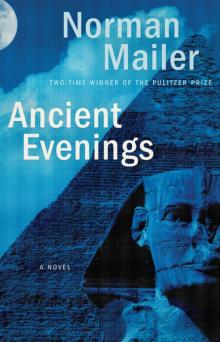 Ancient Evenings
Ancient Evenings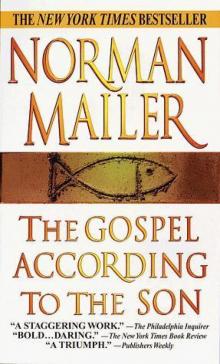 The Gospel According to the Son
The Gospel According to the Son Oswald's Tale: An American Mystery
Oswald's Tale: An American Mystery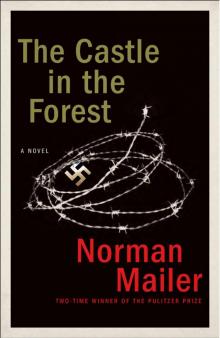 The Castle in the Forest
The Castle in the Forest The Executioner's Song
The Executioner's Song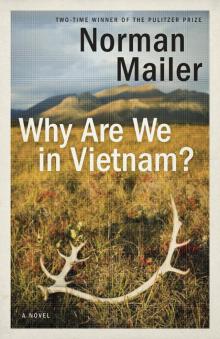 Why Are We in Vietnam?
Why Are We in Vietnam? The Deer Park: A Play
The Deer Park: A Play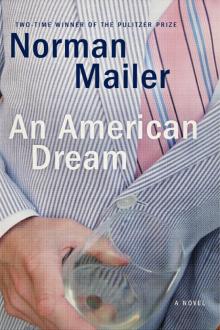 An American Dream
An American Dream Why Are We at War?
Why Are We at War?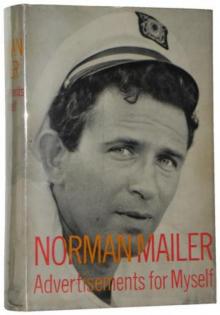 The Time of Her Time
The Time of Her Time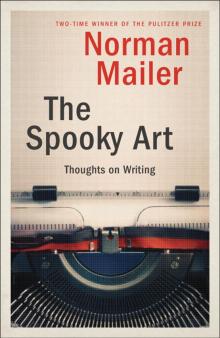 The Spooky Art: Thoughts on Writing
The Spooky Art: Thoughts on Writing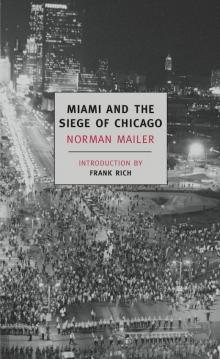 Miami and the Siege of Chicago
Miami and the Siege of Chicago Mind of an Outlaw: Selected Essays
Mind of an Outlaw: Selected Essays Barbary Shore
Barbary Shore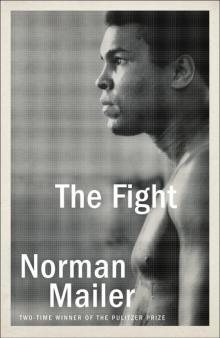 The Fight
The Fight Harlot's Ghost
Harlot's Ghost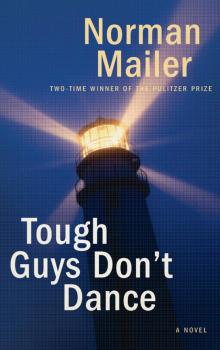 Tough Guys Don't Dance
Tough Guys Don't Dance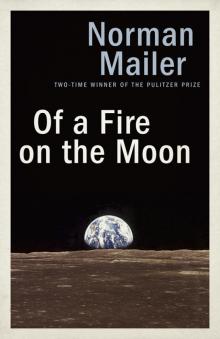 Of a Fire on the Moon
Of a Fire on the Moon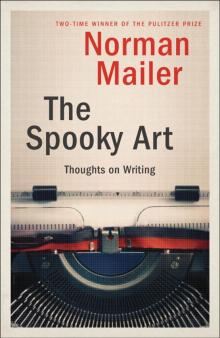 The Spooky Art
The Spooky Art The Deer Park
The Deer Park On God: An Uncommon Conversation
On God: An Uncommon Conversation Mind of an Outlaw
Mind of an Outlaw Oswald's Tale
Oswald's Tale